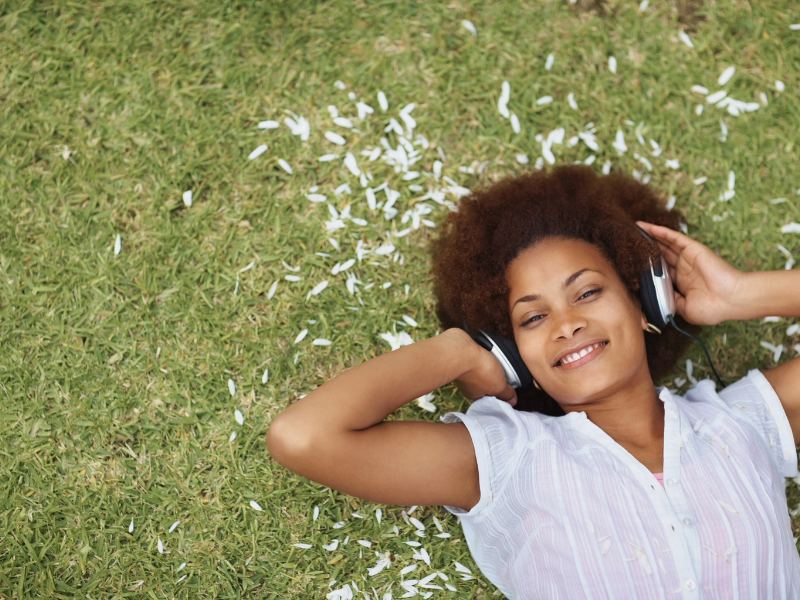Listening to self-selected happy music can provide mood-repair and a sense of connection

Researchers have wondered if “listening to comforting music, as a response to a social loss experience, provides a sense of empathic company as indicated by reduced loneliness and heightened empathy.”
Is a pandemic, such as the one we are living through at the moment, a form of social loss? If we look at social media, there has been an enormous increase in reports of social loss which can come in the form of anxiety, depression and feelings of isolation during this pandemic. We have also seen music used as a means to correct this social loss through apartment concerts, sing-a-longs and jam sessions. Music is both our friend in a time of need and a way to connect with friends in a time of need.
This study examined mood and loneliness and how music listening may alter, and ultimately improve, both mood and feelings of loneliness.
They found the following;
“The results showed a significant reduction of loneliness and a relevant rise in empathy and mood due to listening to self-selected music, irrespective of the listener’s mood or the applied listening strategy, which suggests that private musical engagement in general can provide mood-repair and a sense of connection.”
So it seems that while the active music making we have seen on social media can lift our mood and remedy the feelings of social loss we may have experienced during this pandemic, listening to the music that we choose to change our mood can be just as powerful.
What if music could help neurodivergent students focus, listen, and communicate more easily? Music learning strengthens how the brain processes sound, supports attention and memory, and helps students filter speech in noisy settings. For learners with ADHD, autism, or sensory challenges, it offers a structured, motivating way to build essential skills.
A 2020 study from Brazil found that kids aged 8–12 who joined twice-weekly group music sessions outperformed their peers in reading, writing, and math. They also showed better attention and memory. Led by Projeto Guri, the program proves what many music educators feel: consistent, inclusive music-making fuels broader learning.
Some students don’t light up when the music soars—and it’s not about effort or attitude. Neuroscience is uncovering how individual brain wiring can shape emotional responses to music, including a rare condition called specific musical anhedonia. As educators, this challenges us to broaden our lens: what if joy in music doesn’t look the same for everyone?
Holidays don’t have to mean a full stop to music learning. This blog explores how short, simple strategies—like mental practice, travel-friendly plans, and encouraging messages—can help students stay connected over the break. Plus, find tools and inspiration to support motivation and communication all season long.
Recruitment in 2025 is about more than filling seats—it’s about consistently advocating for music learning as essential to student growth and wellbeing. Families want to see the long-term value, and students need connection and purpose. Ongoing, intentional messaging leads to stronger recruitment, stability, and lasting impact.
The “Wanna Be Like…” poster series helps music teachers show students how learning an instrument connects to success beyond the music room. This blog introduces the series, invites teachers to contribute new role models, and offers a free download of five brand-new posters.
Even toddlers can groove to the beat—this study reveals that young children naturally adapt their movements to changing rhythms, especially when music is playful and fun.
Music isn’t just an artform—it’s a brain booster. This post explores how music primes the brain for learning by enhancing focus, memory, and emotional connection. For music teachers, it’s a reminder that every lesson is more than musical—it’s neurological.
Practice works best when it feels like play.
This article explores what really motivates kids to practise music—highlighting the power of choice, enjoyment, and small wins over pressure or routine. A must-read for music educators rethinking how we support practice.
What if perfect pitch isn’t a rare gift you’re born with, but a skill your brain can grow—shaped not by fate, but by how you listen, learn, and tune in over time?
BBB resources are now available in multiple languages—because every brain deserves the chance to learn music.
Melody isn’t just about pitch—it’s how we communicate emotion, intention, and meaning in music and speech alike.
What if perfect pitch isn’t a rare gift you’re born with, but a skill your brain can grow—shaped not by fate, but by how you listen, learn, and tune in over time?
Free Easter campaign download with posters and social tiles to help students understand the value of music learning.
What if you could advocate for music education without adding more work to your already packed schedule?
Engaging in musical activities offers profound benefits for our brains, enhancing various cognitive functions and emotional well-being.
While there can only be one winner of the BBB Music Teacher Award, we also recognize the outstanding efforts of our 2025 Runner-Up, Ruby Mensforth—a teacher whose dedication to fostering a love of music has left a lasting impact on her students.


















